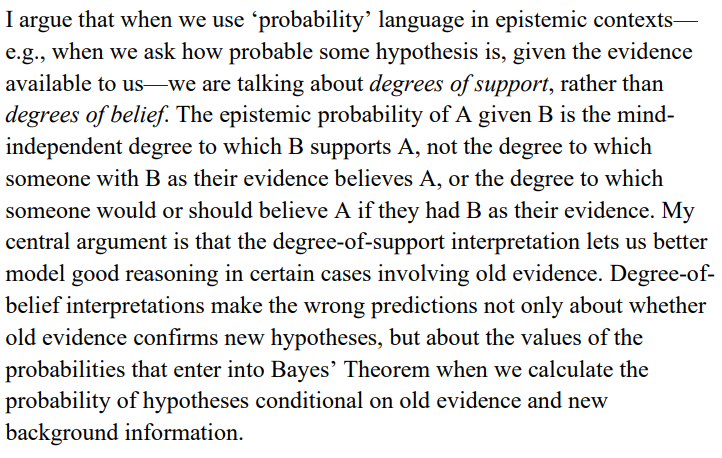
My latest in Philosophy & Phenomenological Research: "Epistemic Probabilities are Degrees of Support, not Degrees of (Rational) Belief". I argue that epistemic probabilities are degrees of support, not degrees of (rational) belief. Check it out here: philpapers.org/rec/CLIEPA-3
And here's a tweetstorm summarizing the paper:
https://twitter.com/NevinClimenhaga/status/1591547898768281600
• • •
Missing some Tweet in this thread? You can try to
force a refresh





